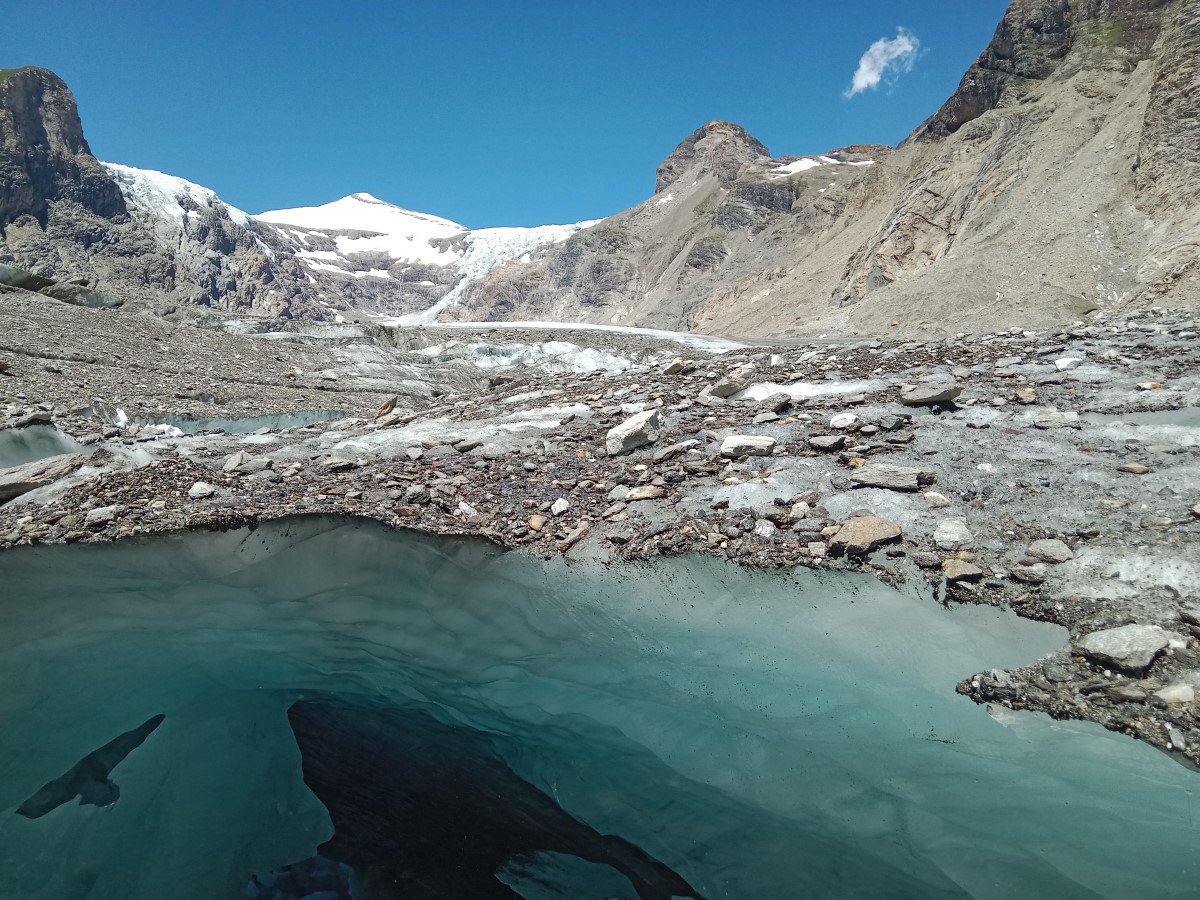News
The final glacier melt

According to forecasts, Austria will be ice-free in 40-45 years – apart from a few remaining glaciers, say researchers. While some glaciers grew in size over the years, depending on weather conditions in the 1970s, the most recent measurements are sobering: the Pasterze below the Grossglockner/A retreated by 203.5 metres; the Rettenbachferner in the Ötztal Alps by 127 metres. The results are similar in other Alpine countries: in Switzerland, for example, a total glacier retreat of one tenth of the total volume has been measured in the last two years, while the Triglav glacier in Slovenia now only covers an area of 0.2 hectares. Experts refer to such small glaciers as “glacierettes”, and their final demise in the coming years can no longer be halted.
A world without glaciers
Against this backdrop, in a recent interview with Swiss broadcaster SRF, Michael Zemp, the Swiss Director of the World Glacier Observatory, considers a world without glaciers. In such a scenario, the masses of glacier water flowing into the valleys would be the least of our problems, as many other climate tipping points, such as rising sea levels, ocean acidification and permafrost melting would already have been passed. Nevertheless, according to Zemp, there is a simple way to prevent all of this: significantly reducing CO2 emissions – a clear mandate for politicians in the Alps and beyond. The United Nations has already recognised the urgency and declared 2025 the “International Year of Glaciers’ Preservation”.
Further information and sources:
https://www.alpenverein.at/portal/news/2024/2024_04_05_Gletscherbericht-2022-23.php (de), https://www.srf.ch/news/gesellschaft/gedankenexperiment-was-waere-wenn-alle-gletscher-weltweit-abschmelzen-wuerden (de), https://www.bbc.com/news/world-europe-66950328 (en), https://www.derstandard.de/story/3000000214604/oesterreich-wird-in-rund-40-jahren-eisfrei-sein (de), https://www.wwf.ch/it/stories/la-morte-dei-ghiacciai (de, fr, it), https://www.rtvslo.si/okolje/verjetno-smo-zadnja-generacija-ki-ostanke-triglavskega-ledenika-se-lahko-opazuje-v-zivo/683741 (sl), https://www.klimazeugen.eu/slowenien-gletscher-und-klimawandel/ (de), https://glamos.ch/#/B36-26 (de, en, fr, it) https://www.water-climate-coalition.org/news/2025-declared-as-the-international-year-of-glaciers-preservation/ (en)





